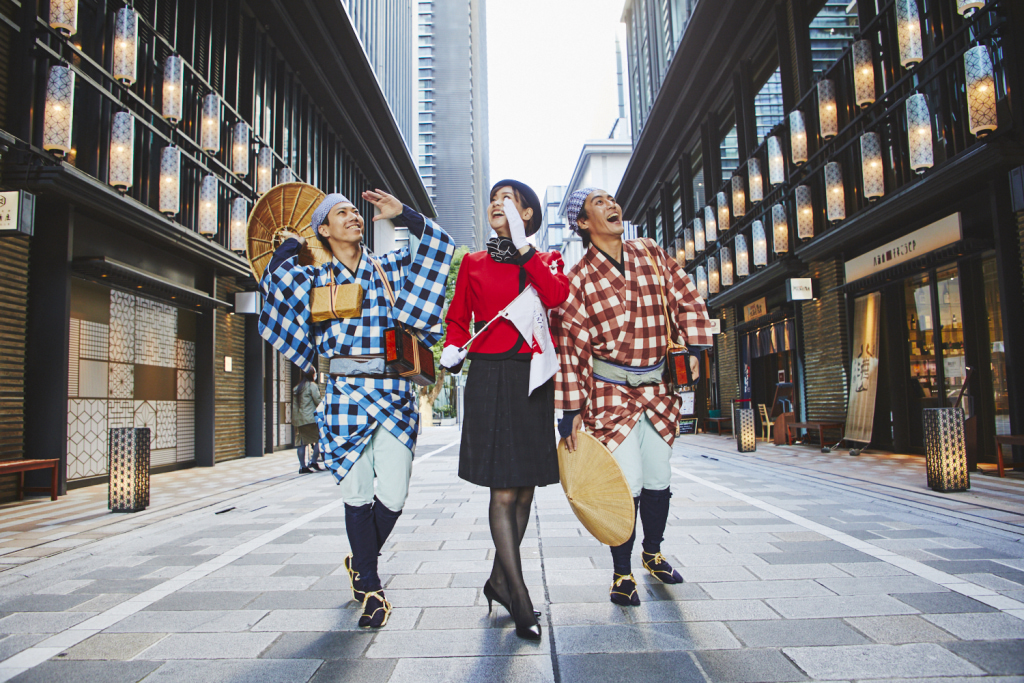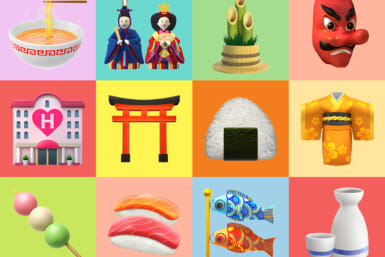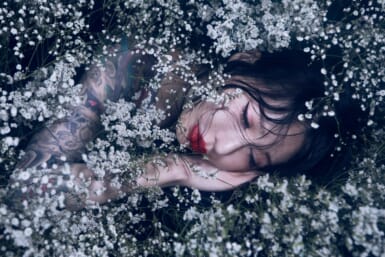Often neglected by first-time visitors, Nihonbashi is a hidden gem only a 20-minute walk from Tokyo Station. The small neighborhood is known for its beautiful mix of modernity and tradition, rich in architectural relics from the past full of innovative ideas. For the last few years, Nihonbashi has had an on-going revitalization project meant to bring forth the roots behind its history and adapt them to contemporary Japan.
Starting in March 2020, those interested in learning more about the historic neighborhood can participate in a theatrical tour of Nihonbashi, a package offering both informative facts and entertainment. Follow a story jumping back and forth between the Edo era (1603-1868) and the 21st century. In-person, you’ll be accompanied by two actors portraying travelers from the 1800s introducing you to the best places in Nihonbashi. Through a radio feed, you’ll be hearing about the history of each location provided by a remote guide.
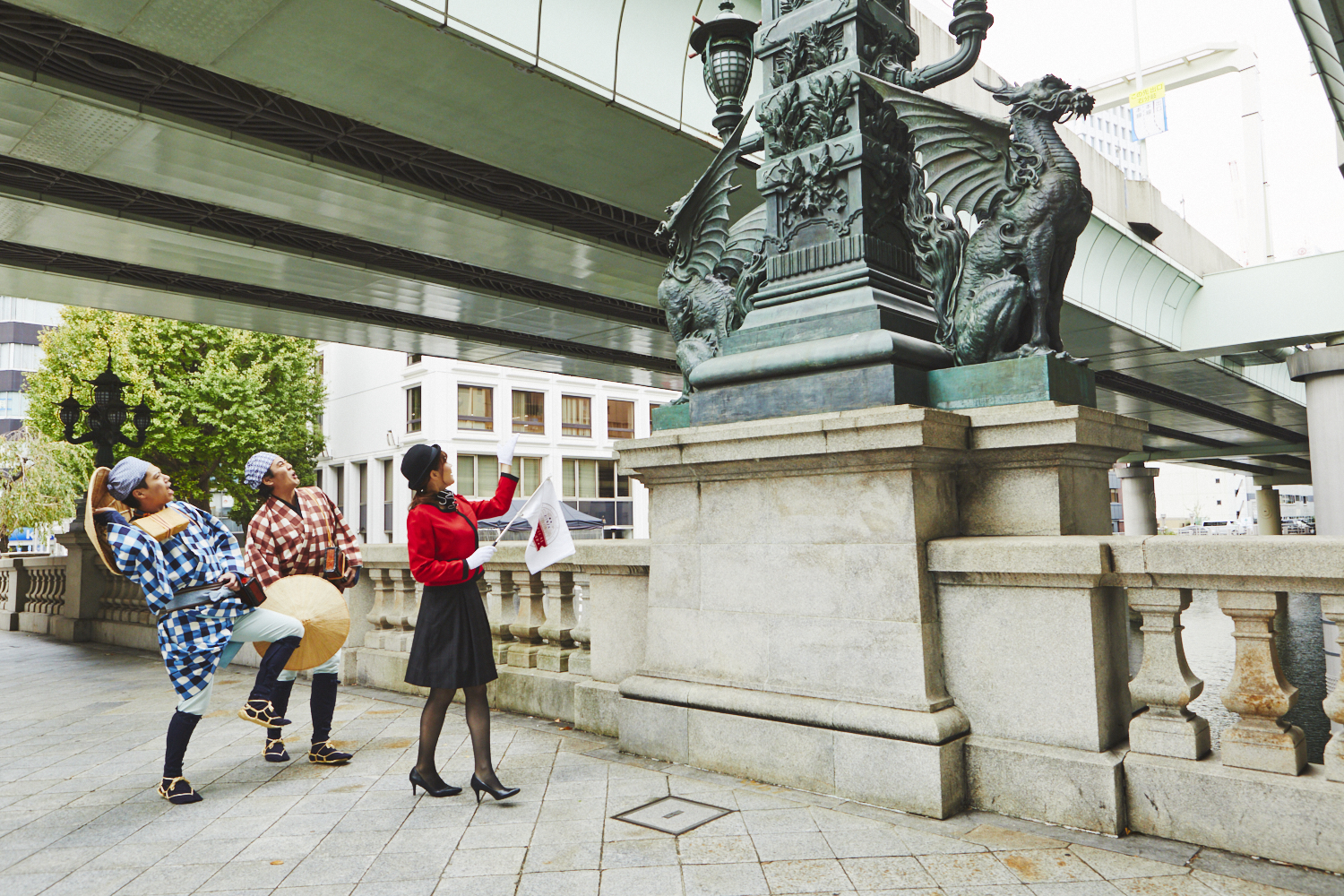
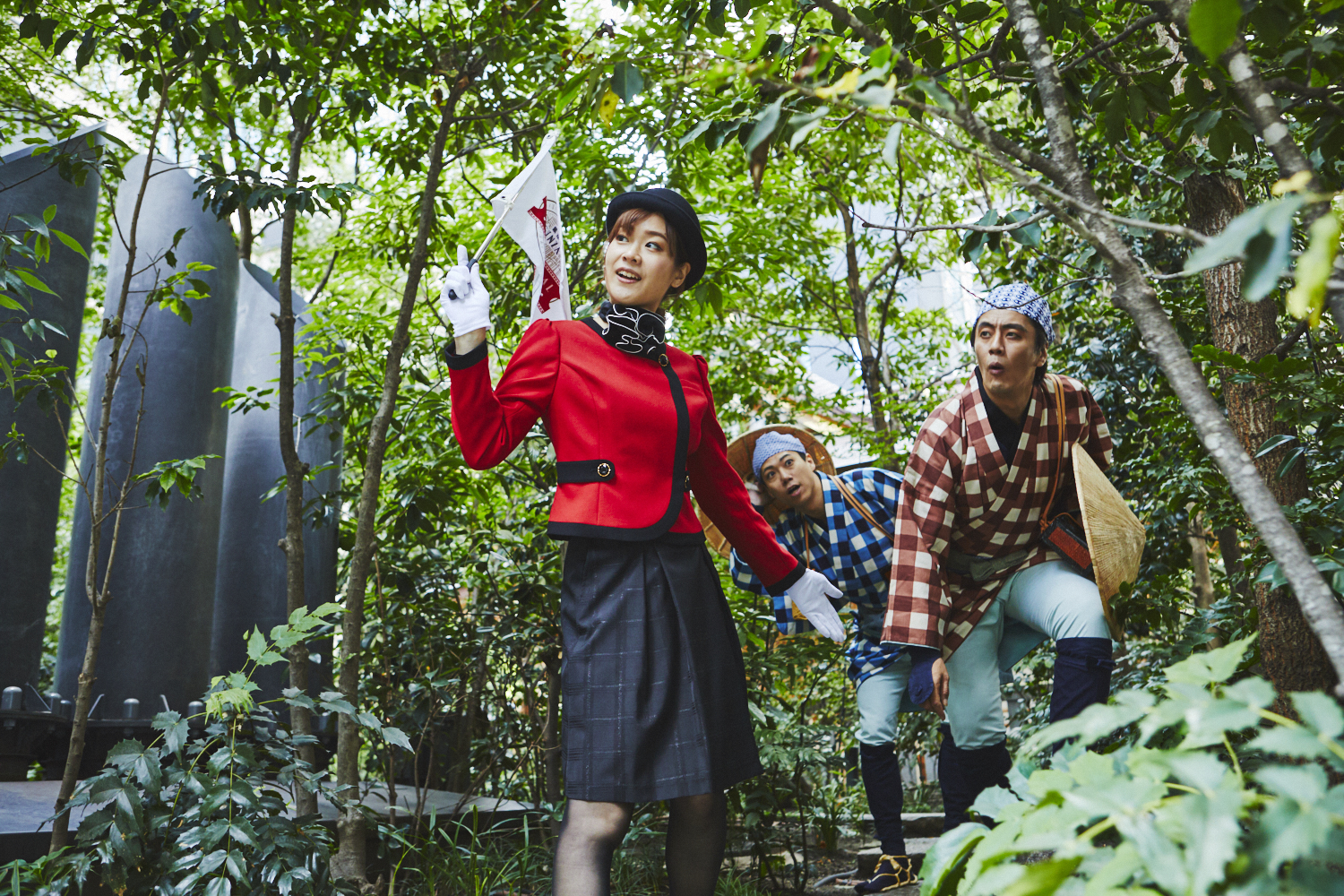
The tour makes sure to include all must-see sightseeing spots and best experiences Nihonbashi can offer, starting with the iconic bridge. The landmark represents the area’s importance in Japanese history, acting as the main exchange between Japan and the world where merchants would import, export and exchange a variety of goods.
Worry not, Nihonbashi’s gastronomy is also an important part of the tour. Participants can visit the famous fruit parlor Sembikiya before wandering about Coredo Muromachi complex. The schedule also includes some sample tasting at Yamamoto Noriten, the biggest producer of seaweed in the country, and Ninben, a dashi specialty store famous for its endless variations on the Japanese staple.
Next, see the famous “Kidai Shoran” emaki (Japanese scroll) painting, a massive work of art depicting Nihonbashi during the Edo period and supposedly painted to share the prosperity of the area with the future generations.
Finally, stop by Fukutoku Shrine. Located right behind Coredo Muromachi, this shrine is a small haven stranding tall among the rising skyscrapers surrounding the area. While it’s unclear when it was originally built, it is said to have had a strong connection to shogun Tokugawa Ieyasu, who worshiped the diety Fukutoku Shrine is dedicated to.

How to Book
You can book your ticket via the theatrical tour website here as of January 24. Pick one of three slots (from 11:00, from 15:00 or from 18:00), and make sure to have a full two hours cleared for the best experience. These tours are only offered on the weekend so some planning maybe required. One ticket is ¥7,800 (tax included) for high school students and older.
Please note these tours are given in Japanese only.
Want to see what else Nihonbashi has to offer? Read our area guide here.

